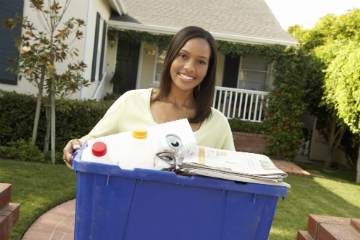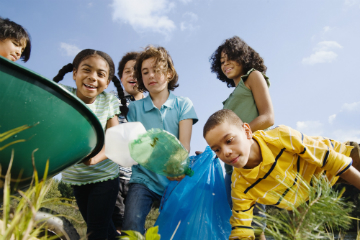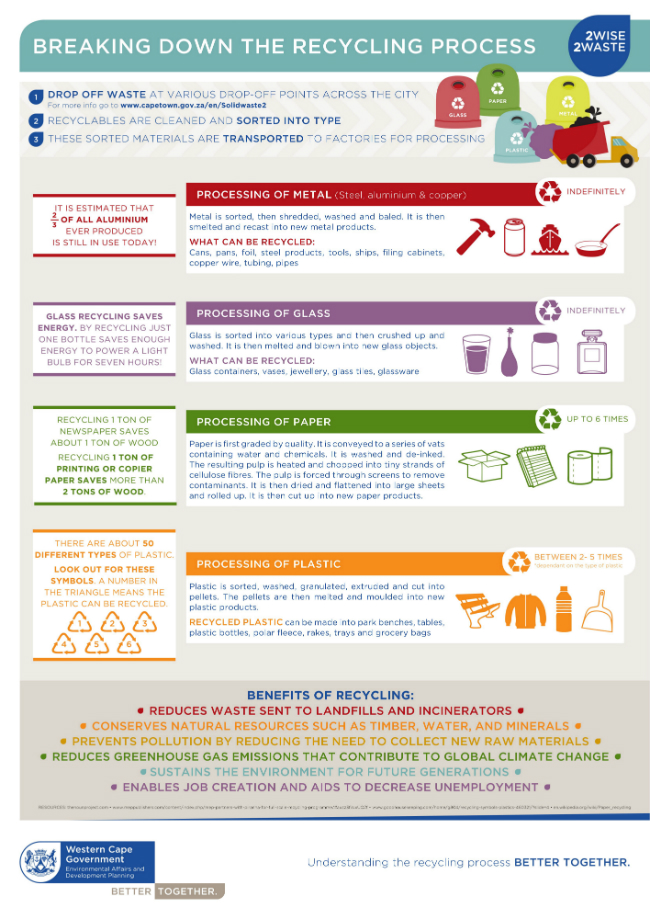Clean-up and recycling week
National Clean-up and Recycle Week is celebrated from 12 – 17 September 2016 and aims to educate and encourage our schools, communities, businesses and organisations to do their bit in cleaning up their immediate surroundings.
Recycling Day 2016
Recycling should be part of our everyday lives to ensure that our children have a future that has enough resources to meet their needs, as well as a clean environment.
Recycling Day encourages everyone to recycle at home, school and at work and to buy products made with recycled material. This day is celebrated on Friday, 16 September and forms part of National Clean-up Week. It aims to increase awareness by educating the community about the social, environmental and economic benefits of recycling.
Difference between recycling and reusing
The difference between recycling and reusing is that while reusing is merely just a repeated use of old products, recycling is using the core elements of old products, such as plastic water bottles, computers, packaging pallets, and cell phones as raw materials to manufacture new goods.
Why is recycling important?
Recycling is one of the best ways for you to have a positive impact both on us and the world in which we live. With recycling, a substantial portion of our waste can be broken down into their original elements and be used to produce new materials.
Breaking down the recycling process
International Coastal Clean-up Day 2016
International Coastal Clean-up Day on 17 September engages people to remove trash from the world’s beaches and waterways, identify the sources of debris and change the behaviours that cause marine debris in the first place.
Each year, thousands of kilograms of almost every imaginable type of waste is removed along the world’s shorelines, and South Africa is recognised as one of the leading participants in this clean-up initiative.
Facts about plastic in the sea 
Did you know that?
- every decade the global plastic production doubles,
- 80% of pollution in the ocean originates on land,
- 33 % of all plastic is only used once,
- it takes 450 years for a plastic bottle to degrade,
- an estimated 270 000 tonnes of plastic waste is floating on the surface of the ocean,
- 90% of sea birds have ingested plastic, and
- 700 marine species are threatened by ocean plastics.
Help keep our oceans and beaches healthy
Although these statistics are overwhelming, but we can start to make a difference today by not littering and recycle at home, our schools and offices.
To find out how you can get involved in making our beaches clean, visit:
- Cape Town Beach Clean-up, an initiative that gets volunteers together every first Saturday of the month to clean up our beaches, or
- join the Two Oceans Aquarium on 17 September at Soetwater Environmental Education Centre in Kommetjie for a beach clean-up.



